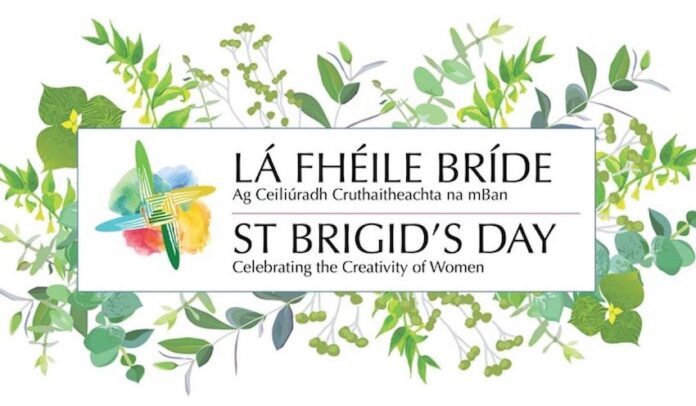The Light Makers – Women Writers in Ireland & Hungary
Edited by Anna Popper
February 1st marks the Feast Day of St. Brigid, one of Ireland’s three patron saints, celebrated with great reverence across the country and beyond. With its roots in both Christian and pre-Christian traditions, St. Brigid’s Day embodies themes of renewal, resilience and the creative spirit, particularly in relation to women’s contributions throughout history and in contemporary society.
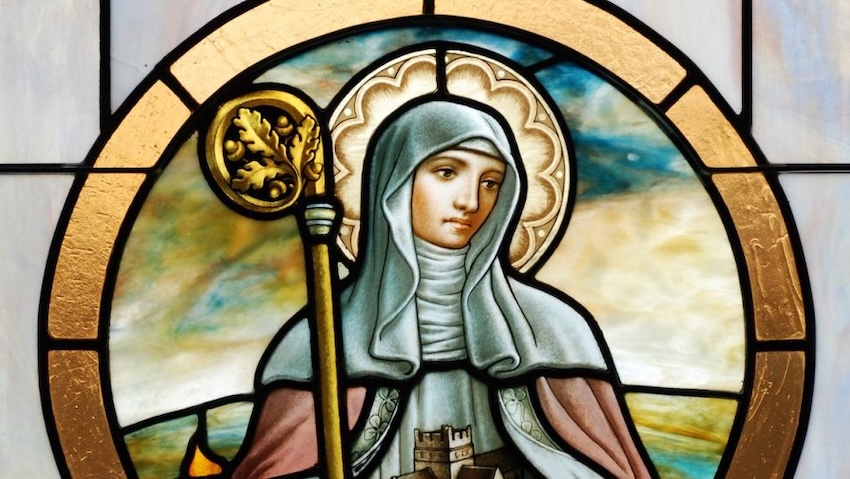
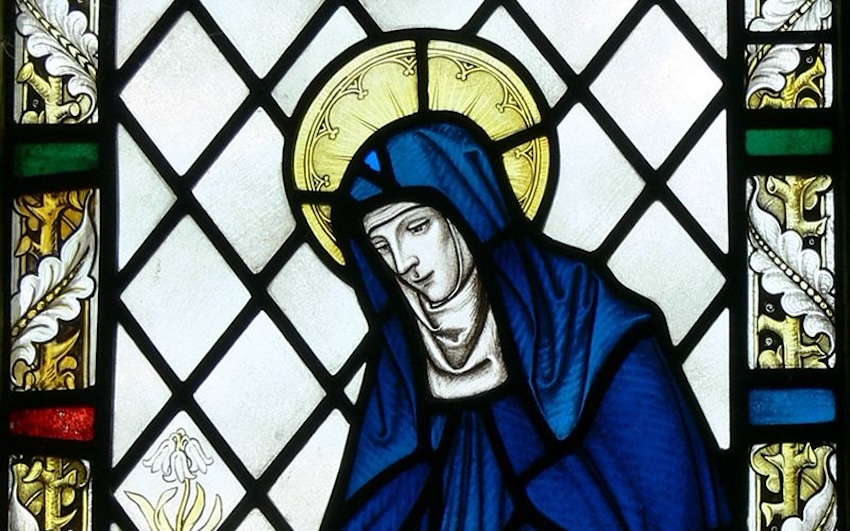
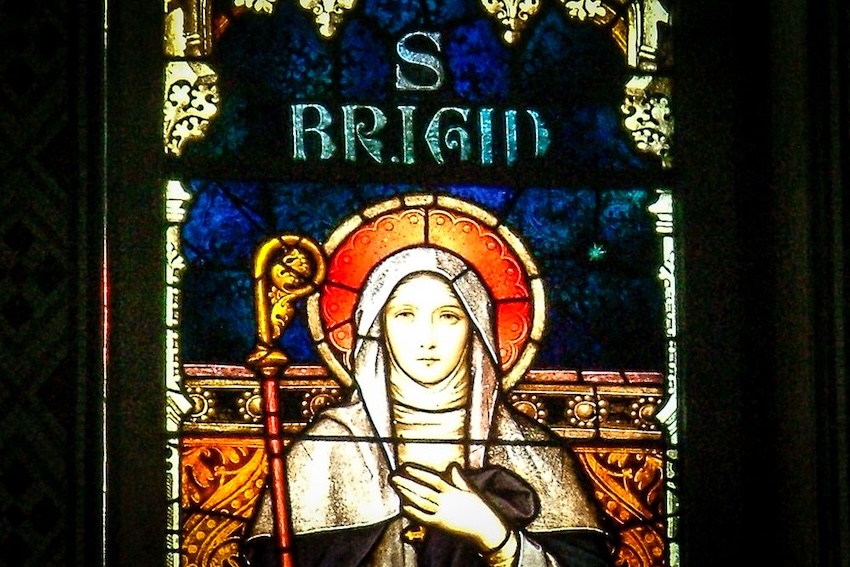
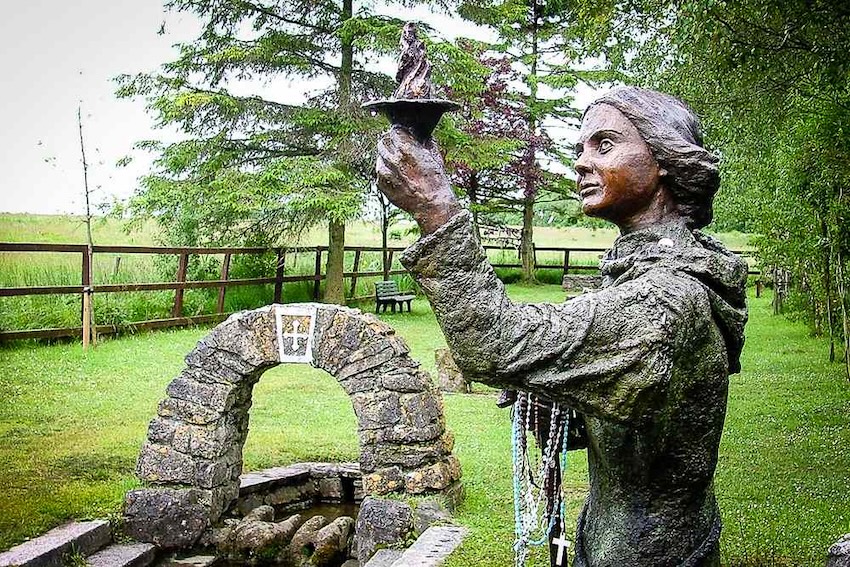
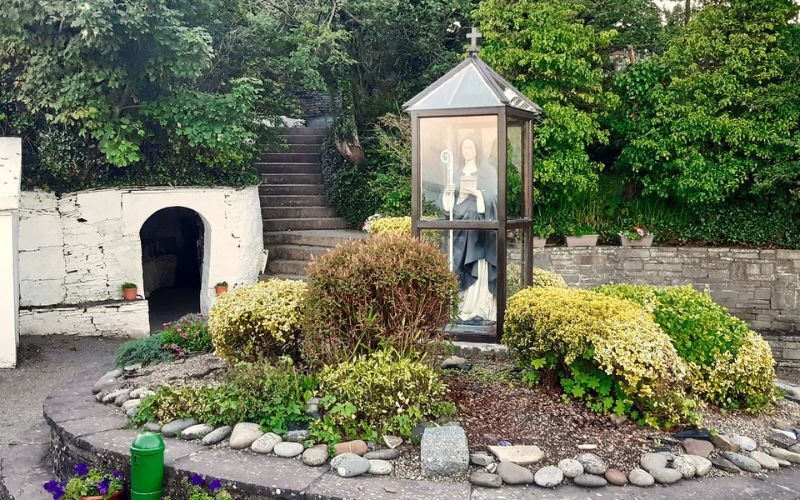
Honouring St. Brigid’s Legacy
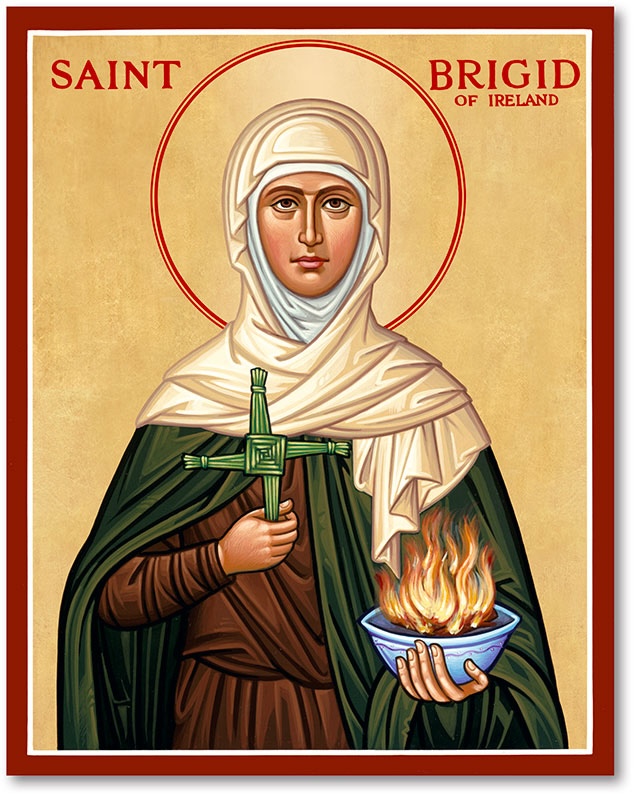
The origins of St. Brigid’s Day date back to the ancient Celtic festival of Imbolc, which marked the transition from winter to spring and honoured the goddess Brigid, associated with healing, poetry and fertility. With the spread of Christianity, the festival became intertwined with the legacy of St. Brigid of Kildare, a revered religious figure born near Dundalk, Co. Louth in 450 AD. As the founder of a prominent monastery in Kildare, she played a crucial role in the Christianisation of Ireland and was attributed with performing miracles, especially healing the sick.
Her feast day, 1 February, remains a time of celebration and reflection. St. Brigid lies in the heart of Irish history, a figure shrouded in mysticism and revered for her compassion, generosity and miraculous powers. She is associated with various aspects of feminine power, including healing, poetry and nurturing. As a patron saint of Ireland, she holds a special place in Irish culture, particularly among women. Tradition holds that she died on 1 February 524.
In 2024, Ireland commemorated the 1500-year anniversary of her death and celebrated her enduring influence and legacy.
Today, St. Brigid’s Day is widely commemorated throughout Ireland with regional festivities including parades, music, cultural events and religious services. One of the most iconic traditions is the making of St. Brigid’s Cross, a symbol crafted from rushes or straw that is believed to provide protection to homes.
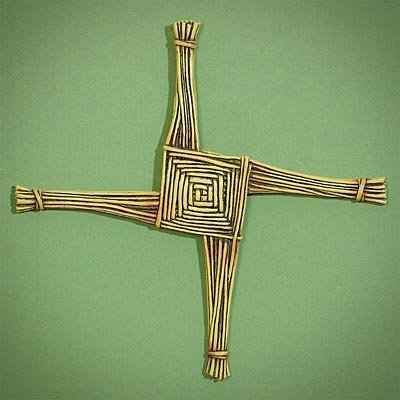

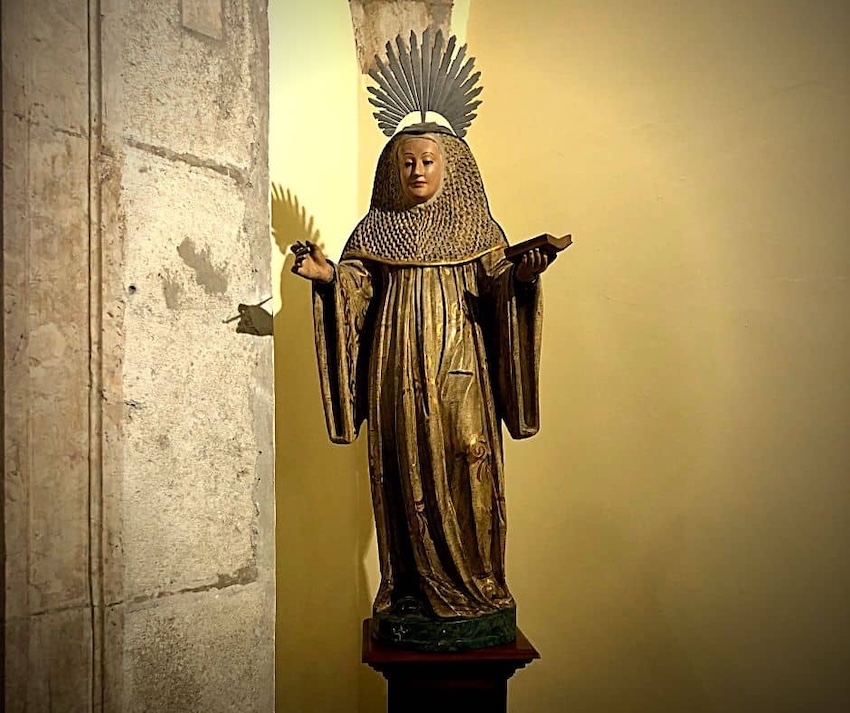
St. Brigid’s Day Beyond Ireland
Although deeply rooted in Irish tradition, St. Brigid’s Day has evolved into an international celebration of women’s contributions to society. Ireland’s embassies worldwide have embraced the occasion to highlight the achievements of women in various fields, from literature and the arts to science and public service. From Boston to Berlin, Sydney to Santiago, events honouring St. Brigid’s legacy have provided a platform for discussions on gender equality and the role of women in shaping contemporary society.
Each year, Ireland’s Department of Foreign Affairs and Trade marks Saint Brigid’s Day by celebrating the role and creativity of women in the arts, business and public life. Events are held in Ireland and in Irish embassies around the world. The celebration showcases the work of trailblazing, inspirational women who are leaving their mark in a range of fields. The day is also used as a platform to highlight gender issues, experiences in business and creative sectors.

The events marking the day raise awareness of the many challenges women face in the workplace and in public life. These occasions provide an opportunity to promote norms and best practices in the field of equality and diversity.
Celebrating Women Writers in Budapest
In keeping with this global tradition, the Embassy of Ireland in Budapest hosted a special event entitled “The Light Makers: Women Writers in Ireland & Hungary” at the prestigious Library of the Hungarian Academy of Sciences. This unique gathering celebrated the profound contributions of female writers from both nations, highlighting their literary achievements and the challenges they continue to face on their creative journeys.
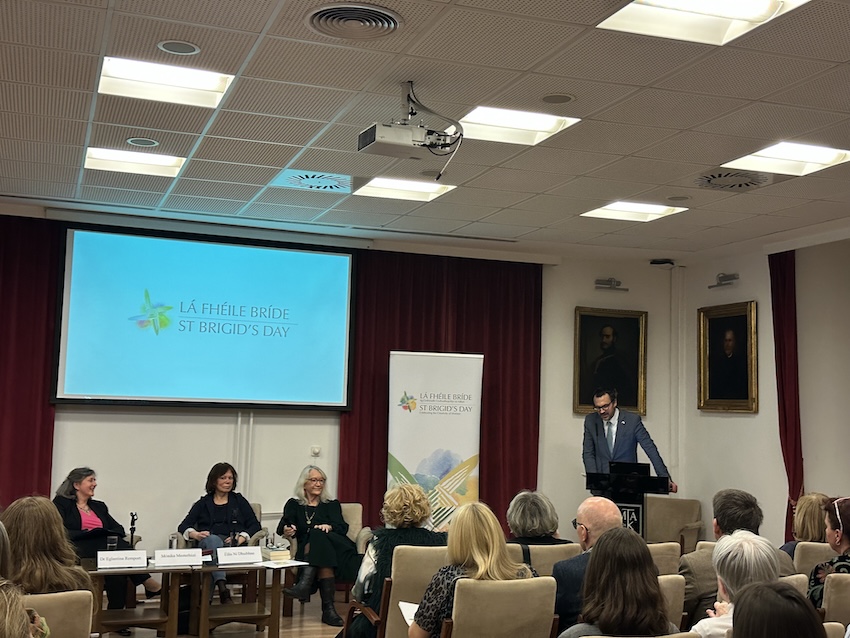
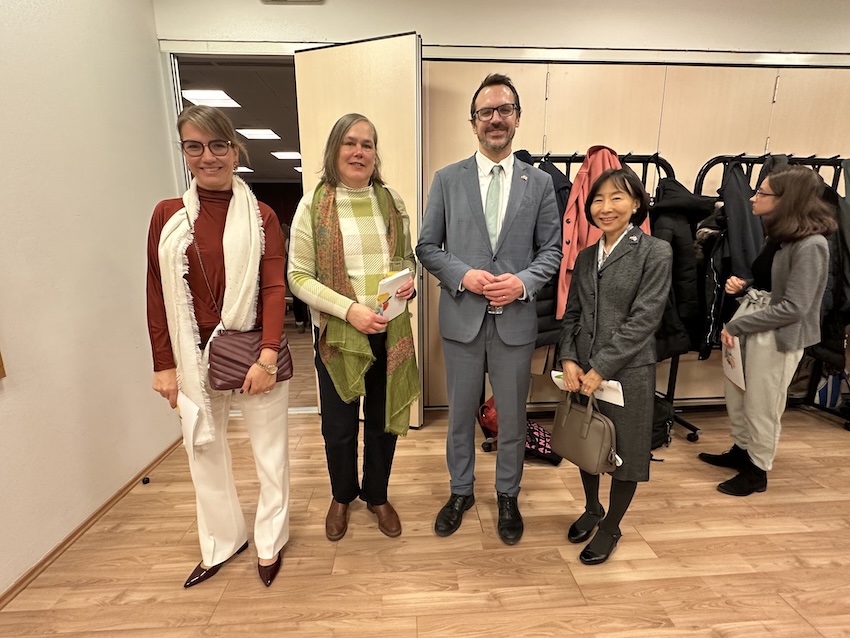
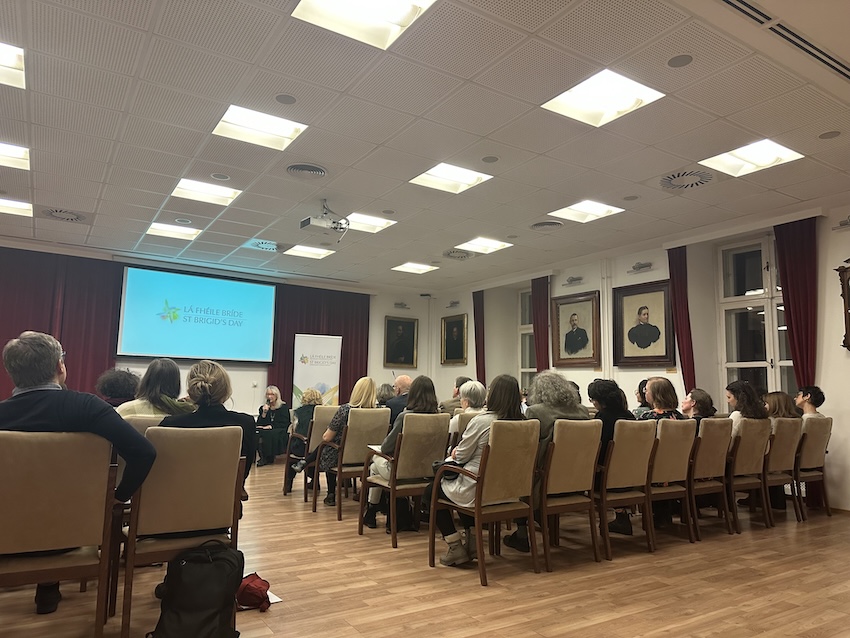
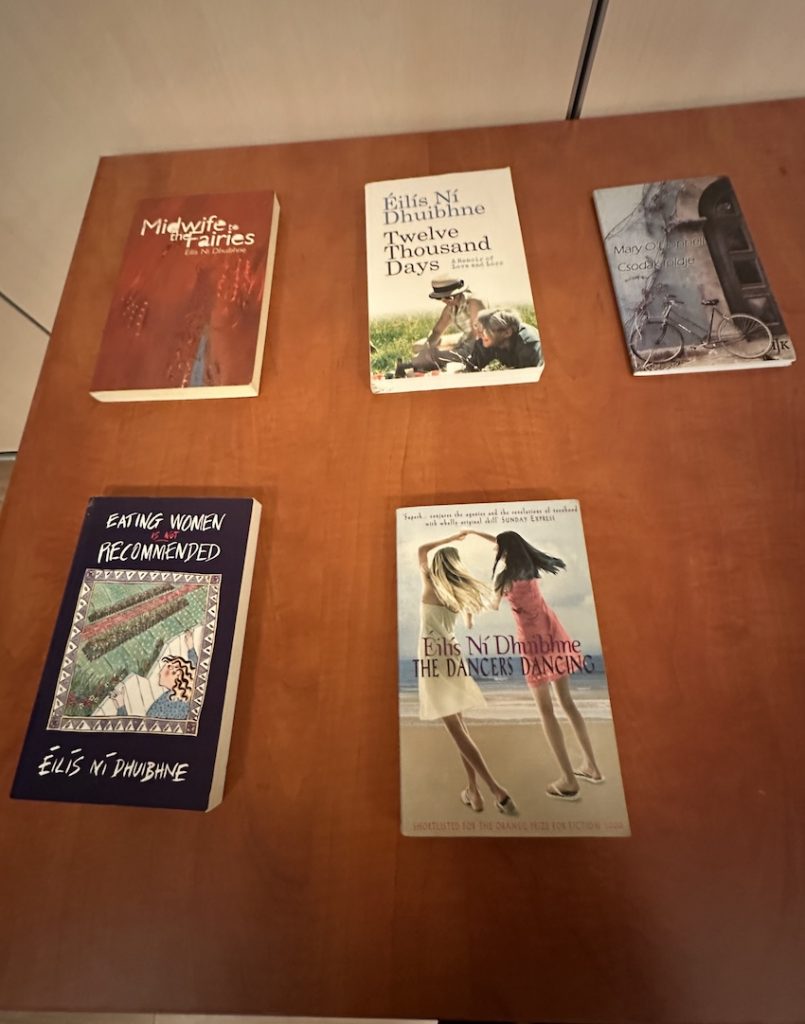
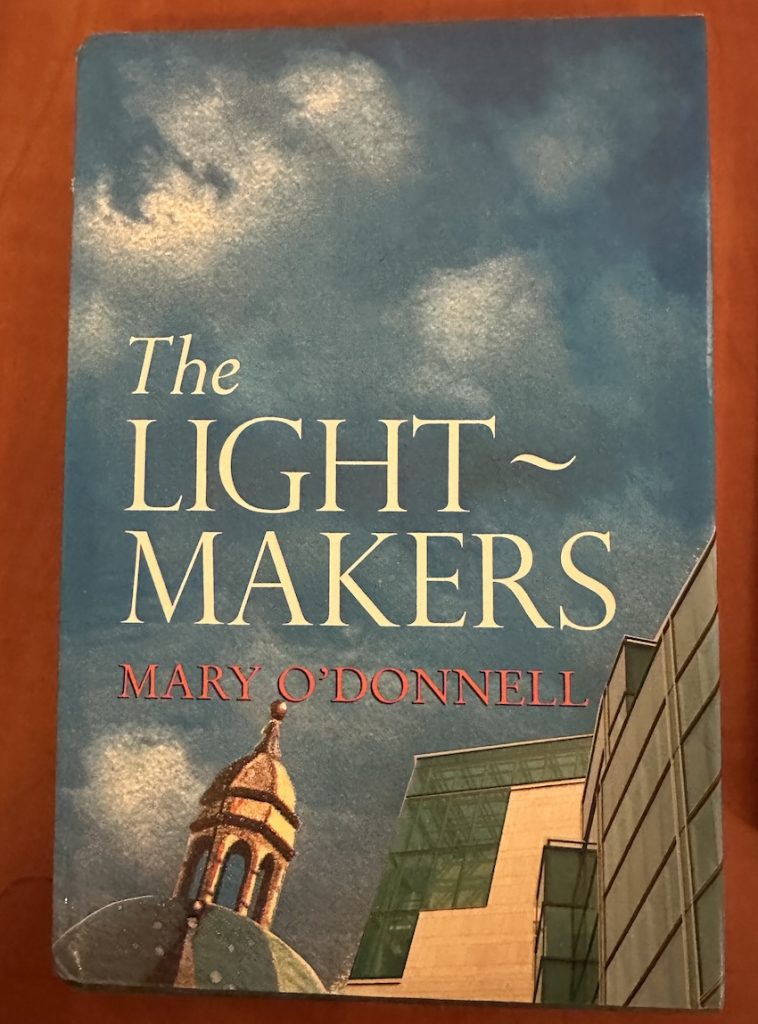
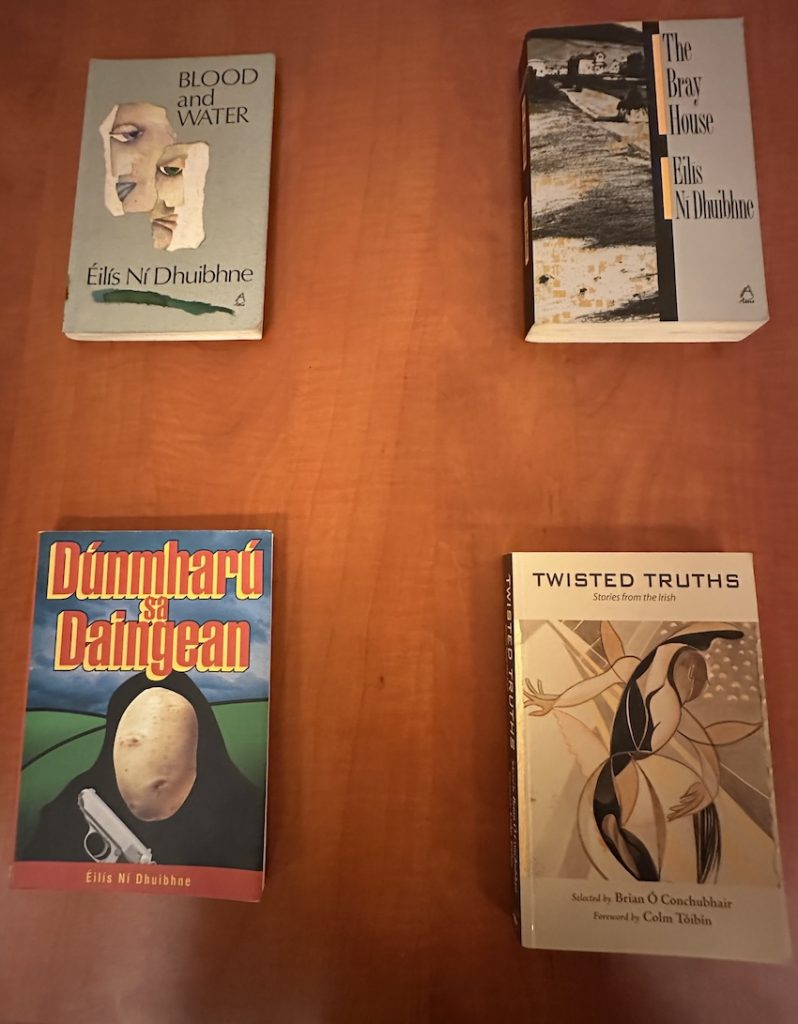
The program, dedicated to St Brigid’s Day 2025, began with a screening of At Brigid’s Well by Doireann Ní Ghríofa.
This was followed by a welcome address from H.E. Ragnar Almqvist, Ambassador of Ireland to Hungary, a devoted literature specialist who is eagerly learning Hungarian. He has forged strong ties with the Hungarian city of Szombathely, inspired by James Joyce, whose Ulysses placed Szombathely on the literary world map.
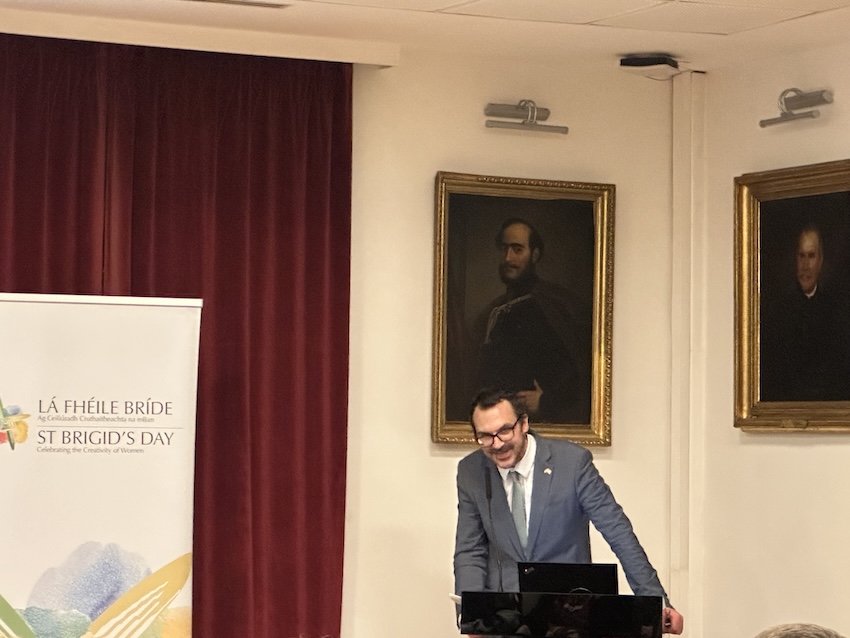
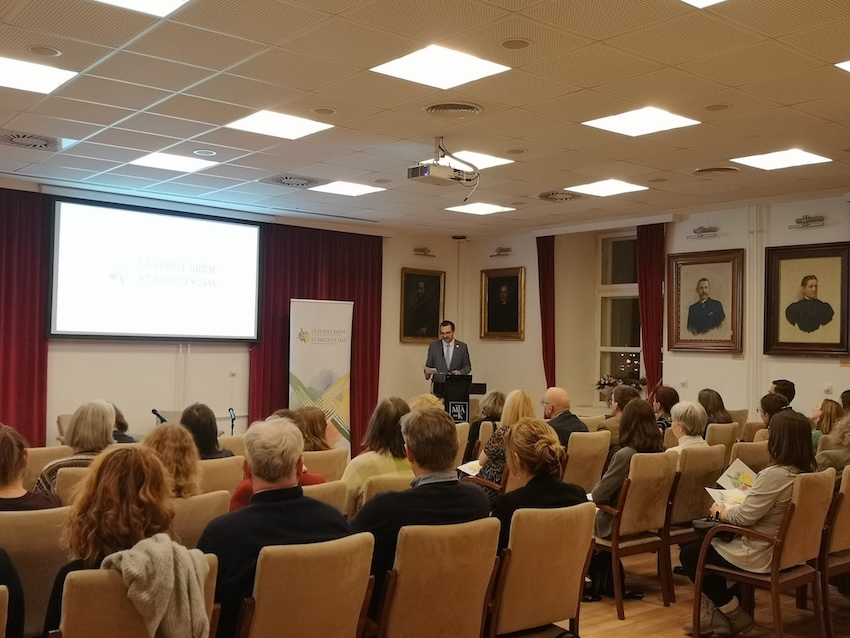
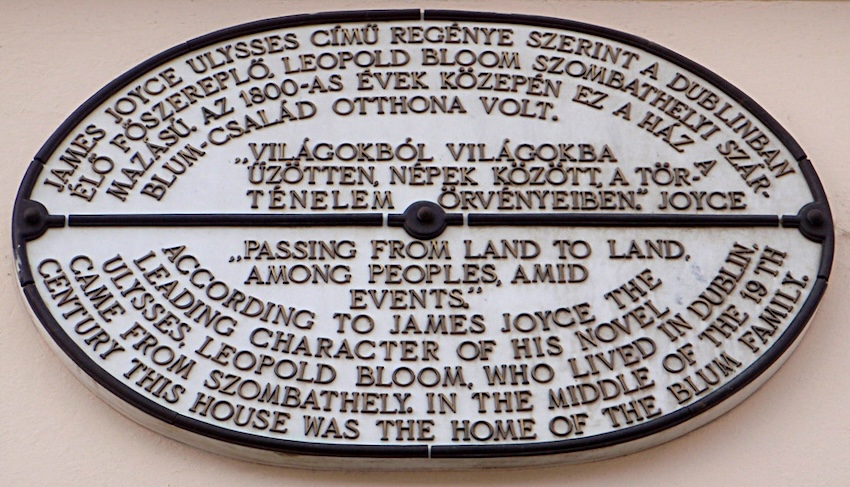
Next, Marta Legrady read selected works by Mary O’Donnell and Éilis Ní Dhuibhne, two distinguished Irish writers who were special guests at the event.
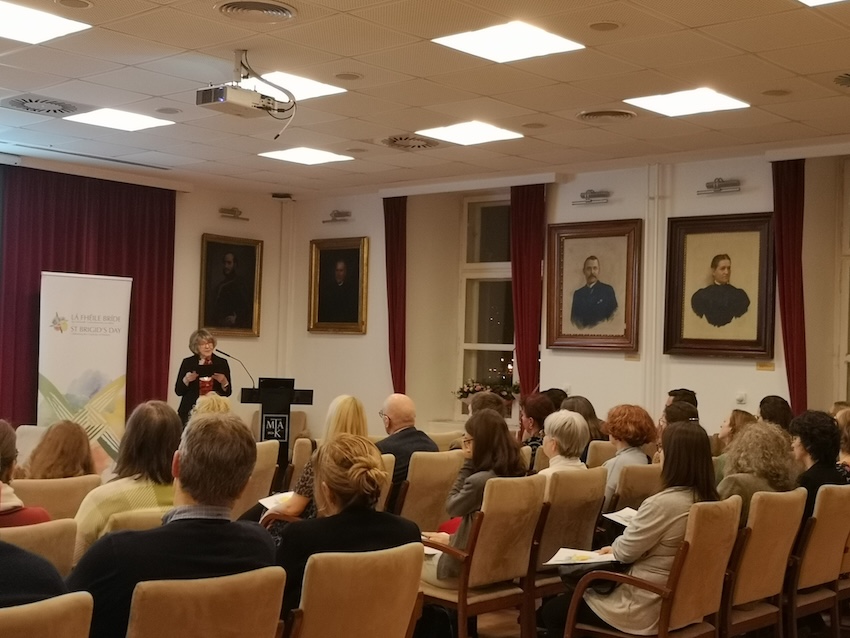
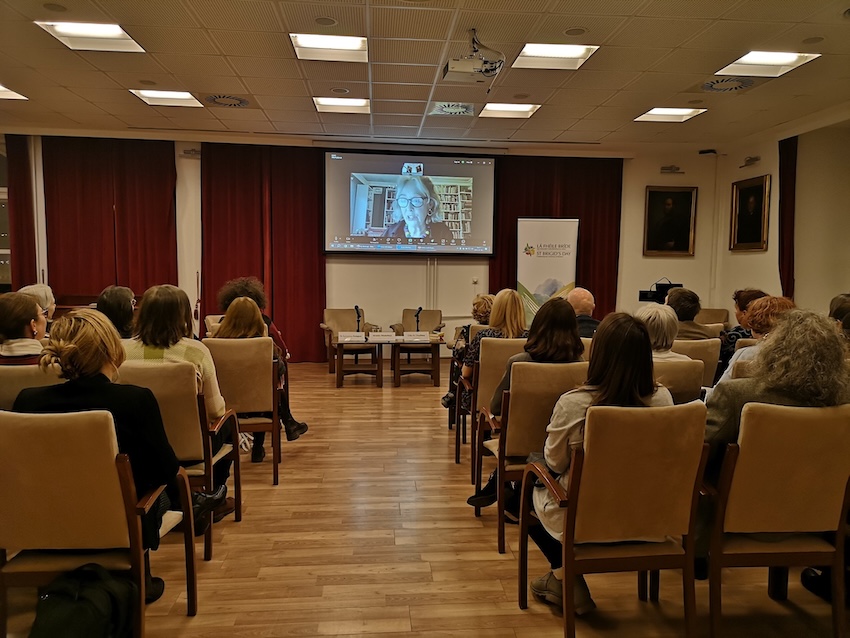
As a highlight of the evening, a roundtable discussion was held, focusing on gender issues and professional experiences in business, the creative sector and public life. This engaging dialogue provided an opportunity to explore the challenges women face, while promoting best practices in equality and diversity.
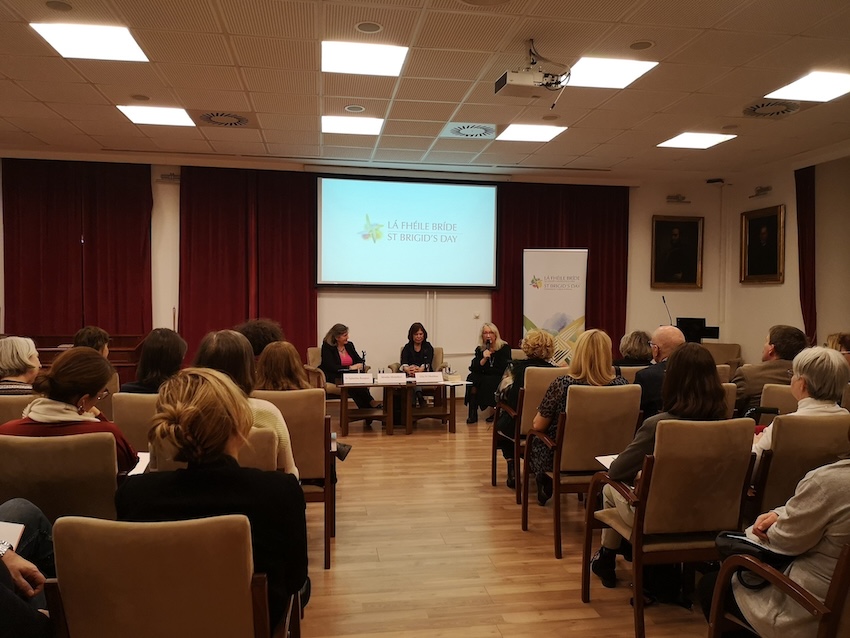
The insightful discussion included distinguished female authors from Ireland and Hungary:
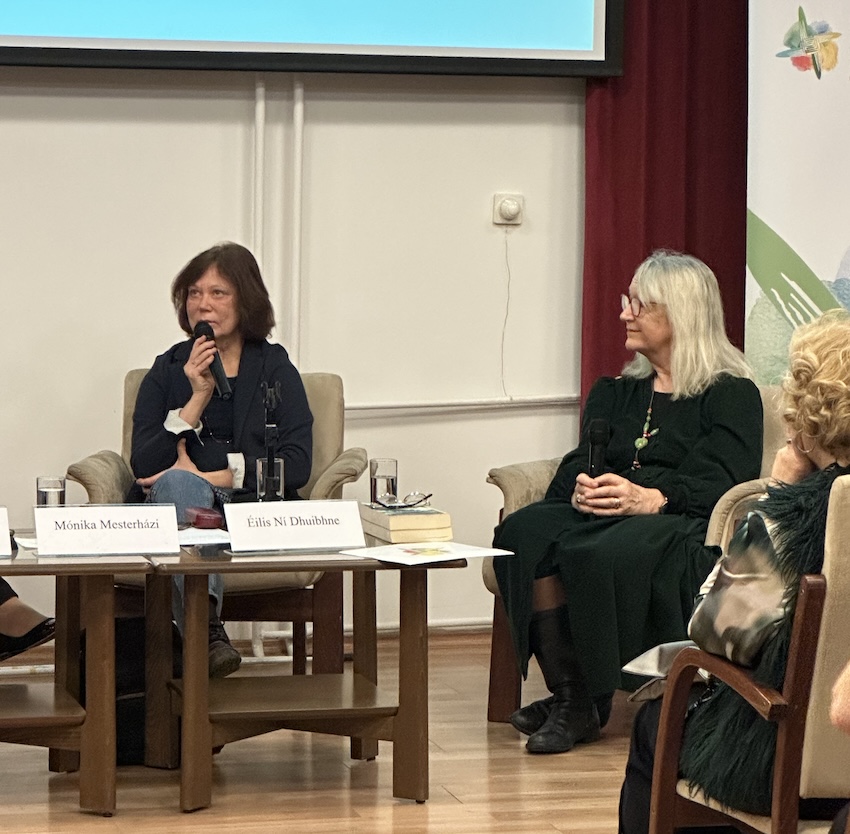
- Mónika Mesterházi is a literary translator as well as a poet, teacher and essayist. She wrote her PhD dissertation on Northern Irish Poetry in 2002.
- She has translated novels by Anne Enright, J. G. Farrell, Claire Kilroy, McCann, Colum, Joseph O’Connor, poems by Jean Bleakney, Ciaran Carson, Desmond Egan, Seamus Heaney, John Hewitt, Kevin Higgins, James Joyce, Michael Longley, Louis MacNeice, Derek Mahon, Sinead Morissey, Paul Muldoon, Matthew Sweeney. Jonathan Swift, W. B. Yeats, a drama by W. B. Yeats and a radio play by Padraic Fallon. With fellow translators and poets she selected, translated and edited two volumes of Seamus Heaney’s poetry. A freelancer living in Budapest, she is the author of five books of poetry.

- Marta Legrady has deep Hungarian roots, despite having spent most of her life in Canada. She moved to Budapest four years ago and has been happily rediscovering her heritage ever since. Being fluent in both English and Hungarian has certainly made the transition easier for her, although she still marvels at the quirks of day-to-day life in Hungary. Marta has been an educator all her life, teaching at all levels from kindergarten to university for 34 years. She was also part of a pioneer group of women principals in Toronto breaking barriers in school leadership when the Toronto District School Board sought to address the gender imbalance in administration. In retirement, Marta returned to her first love: acting. Over the past 20 years she has enjoyed performing in a variety of roles in various media, including her most recent Budapest stage production, “The Beauty Queen of Leenane” by Irish playwright Martin McDonough. She is honoured to contribute to this special celebration.
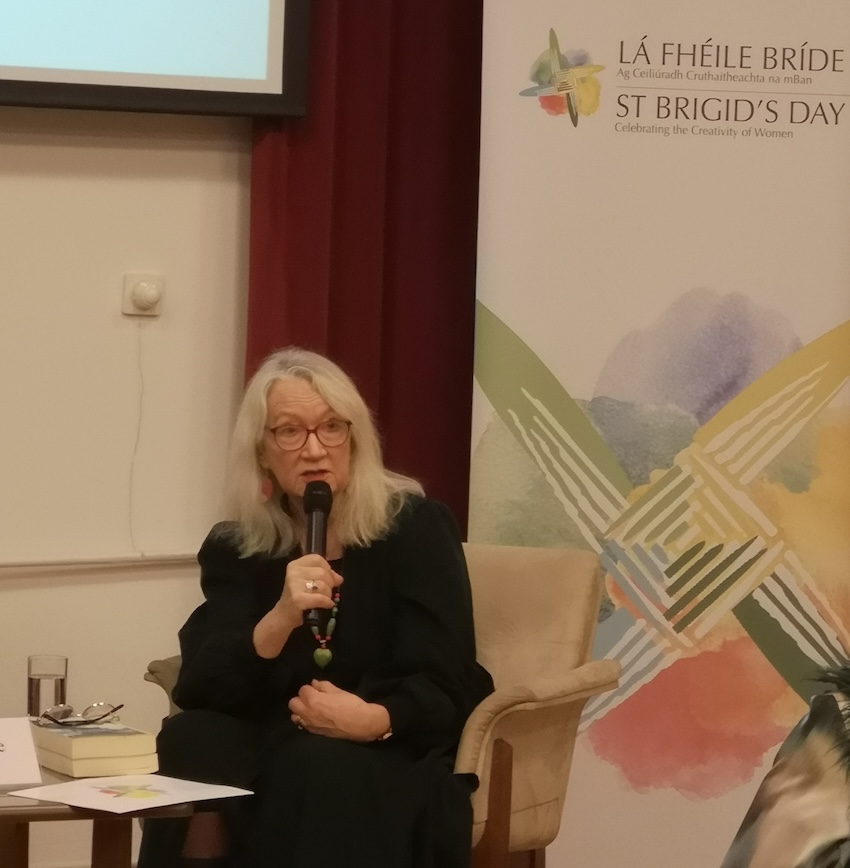
- Éilis Ní Dhuibhne is the author of more than twenty books, including seven short story collections, award-winning novels in English and Irish, children’s books and most recently the acclaimed Twelve Thousand Days: A Memoir of Love and Loss. Shortlisted for the Orange Prize for Fiction, she is a recipient of the Irish PEN Award.
- In 2021, she edited Look! It’s a Woman Writer!: Irish Literary Feminisms, 1970-2020, a collection of essays by 21 of Ireland’s leading women writers, including Mary O’Donnell, who paved the way for a more egalitarian literary scenes through their activism and, above all, their art.
- She is President of the Folklore of Ireland Society and has been a writer fellow at both Trinity and University College Dublin.
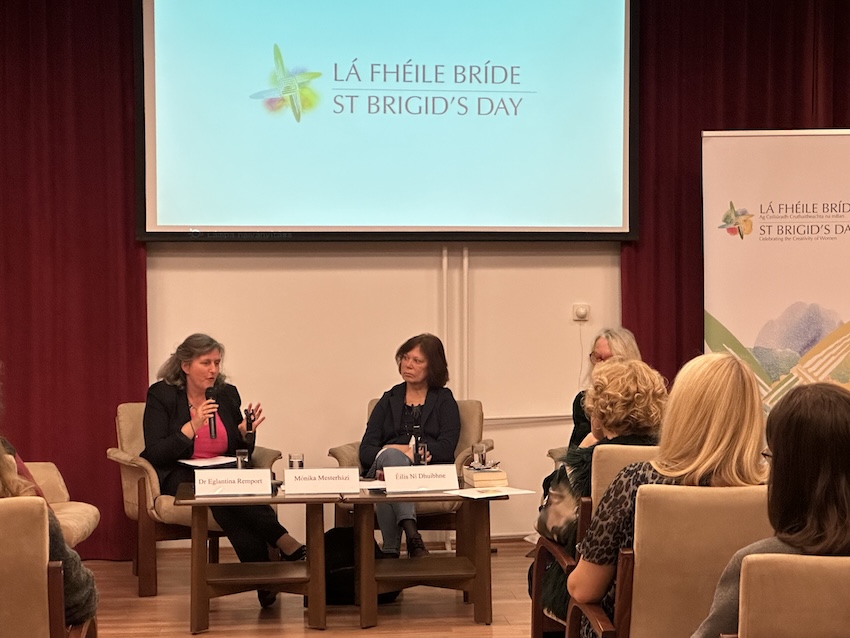
- Dr Eglantina Remport is a senior lecturer in the Department of English Studies at Eötvös Loránd University (ELTE). Awarded a Ph.D. at Queen’s University Belfast, Northern Ireland, she has published extensively on Irish literature and has authored a monograph on Lady Augusta Gregory and the Abbey Theatre (2018). She is a founding member of the Budapest Centre for Irish Studies (BCIS); a former board member of the European Federation of Associations and Centres of Irish Studies (EFACIS) and a founding member of the Diversity and Inclusion Committee of the Nineteenth-Century Studies Association (NCSA/US). At ELTE she teaches Irish literature, drama and film history, and works with students on projects related to Irish women’s writing.
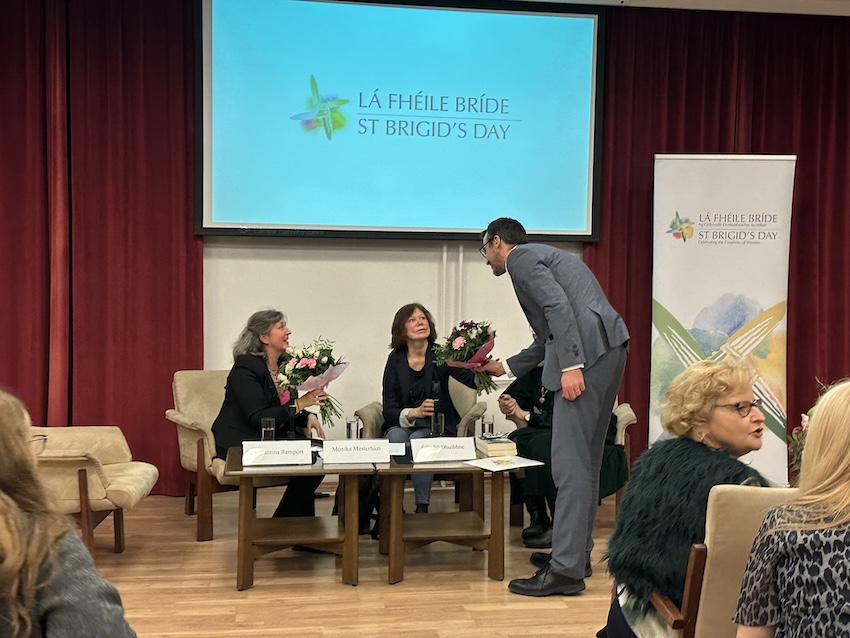
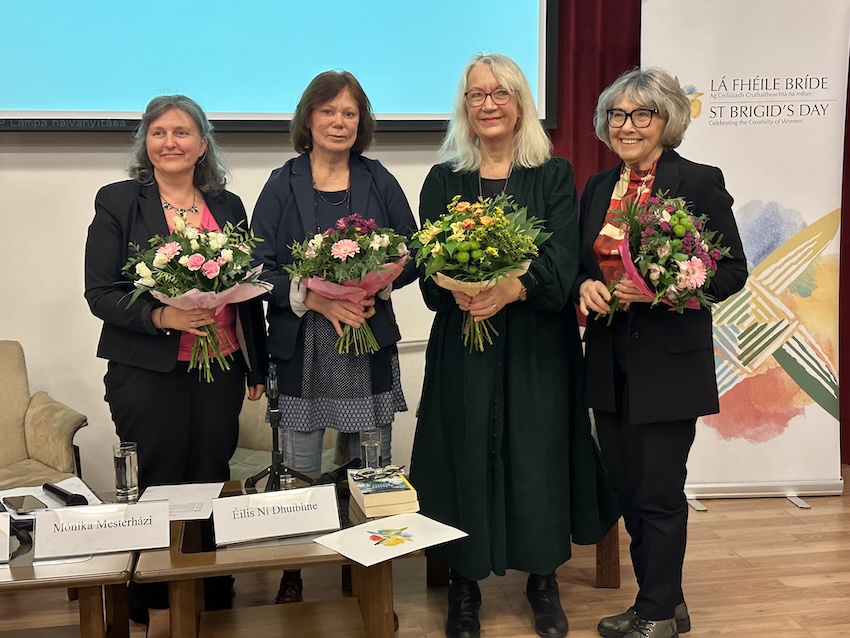
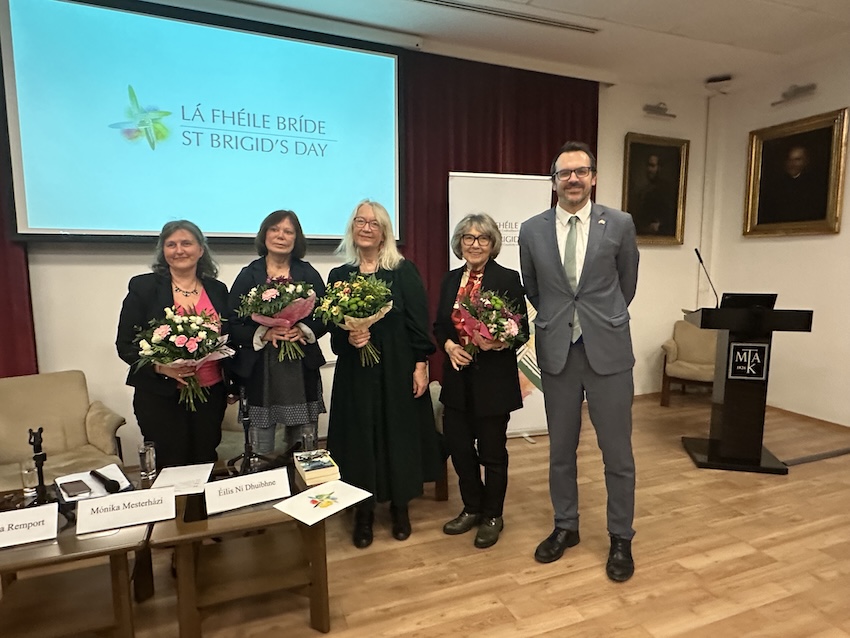
These remarkable women writers, who embody the strong cultural ties between Ireland and Hungary, engaged in an interesting discussion, offering insights into their careers, the role of literature in their respective cultures, and the challenges female writers continue to face today. Their conversation explored themes of identity, creativity, and the evolving role of women in the literary world. The event also featured readings from their works, allowing attendees to experience first-hand the richness and diversity of their voices.
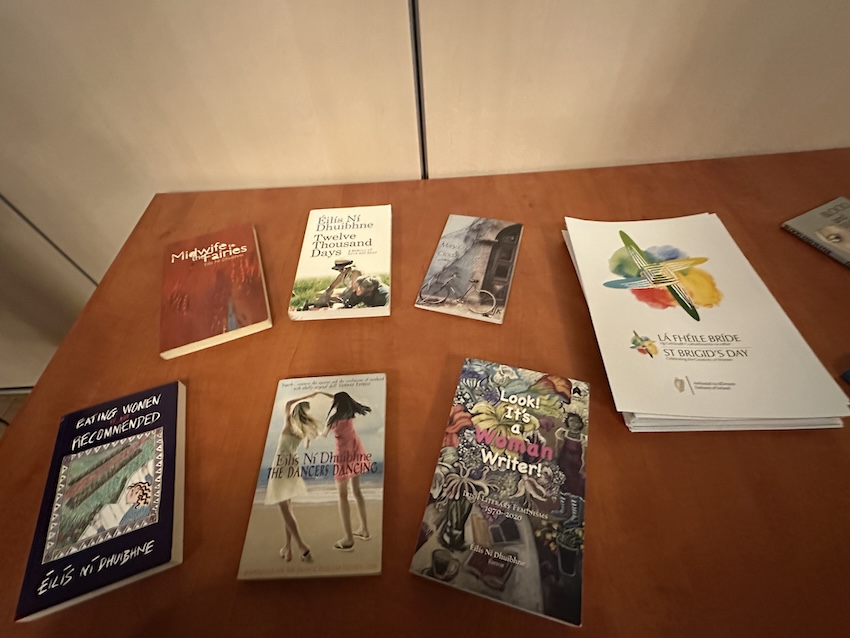
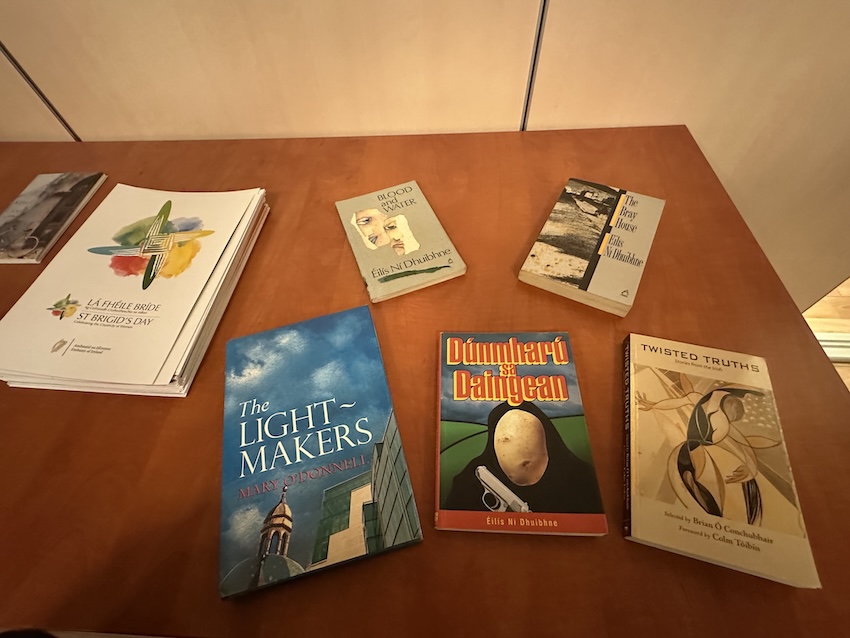
The audience, captivated by the depth and passion of the conversation, listened with fascination and admiration as the writers shared their life experiences, perspectives and literary journeys.
Following the discussion, a reception hosted by the Irish Ambassador provided guests with the opportunity to continue the conversation and celebrate the lasting impact of women in literature.
A Celebration of Renewal and Creativity
St. Brigid’s Day remains a festival of renewal, heralding the arrival of brighter and warmer days and reaffirming the importance of women’s voices in shaping history and culture. This year’s celebration in Budapest was a fitting tribute to the literary talents of Irish and Hungarian women, reinforcing the deep cultural connections between the two nations and the universal power of storytelling. As Ireland continues to commemorate St. Brigid’s Day around the world, events like this ensure that her legacy endures – not only as a symbol of faith and noble tradition, but also as an inspiration for generations of women to come.
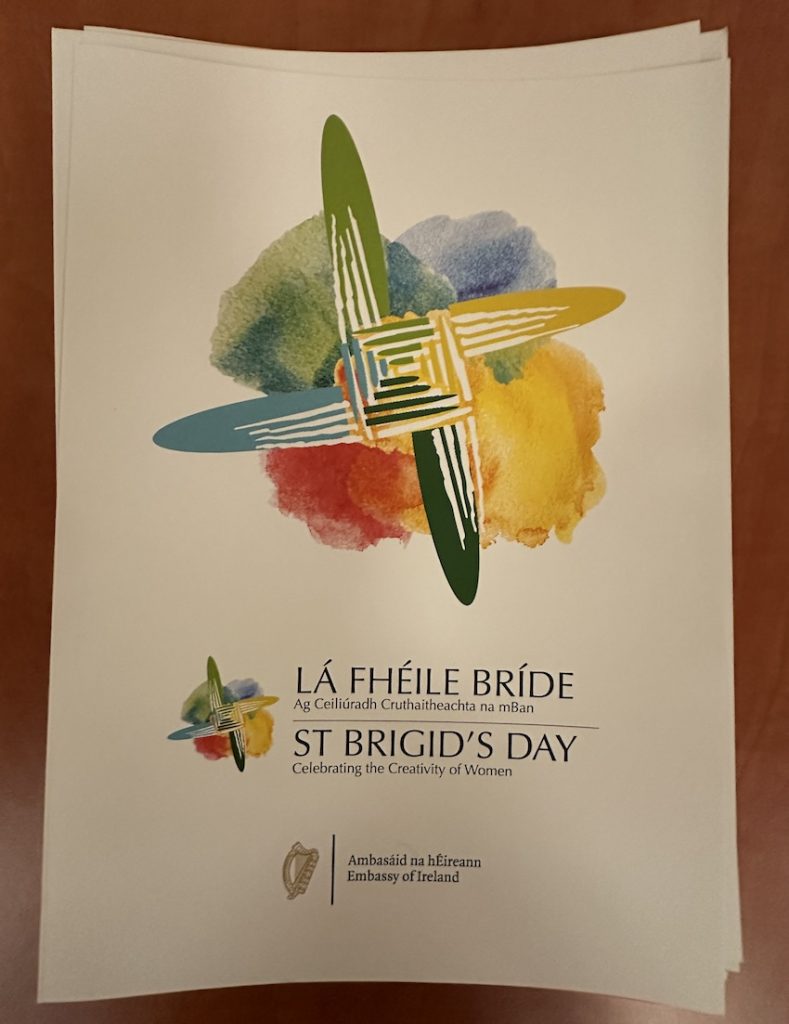
Source: Embassy of Ireland in Budapest
Photos by DPA





